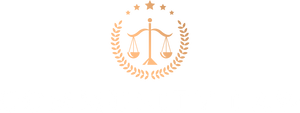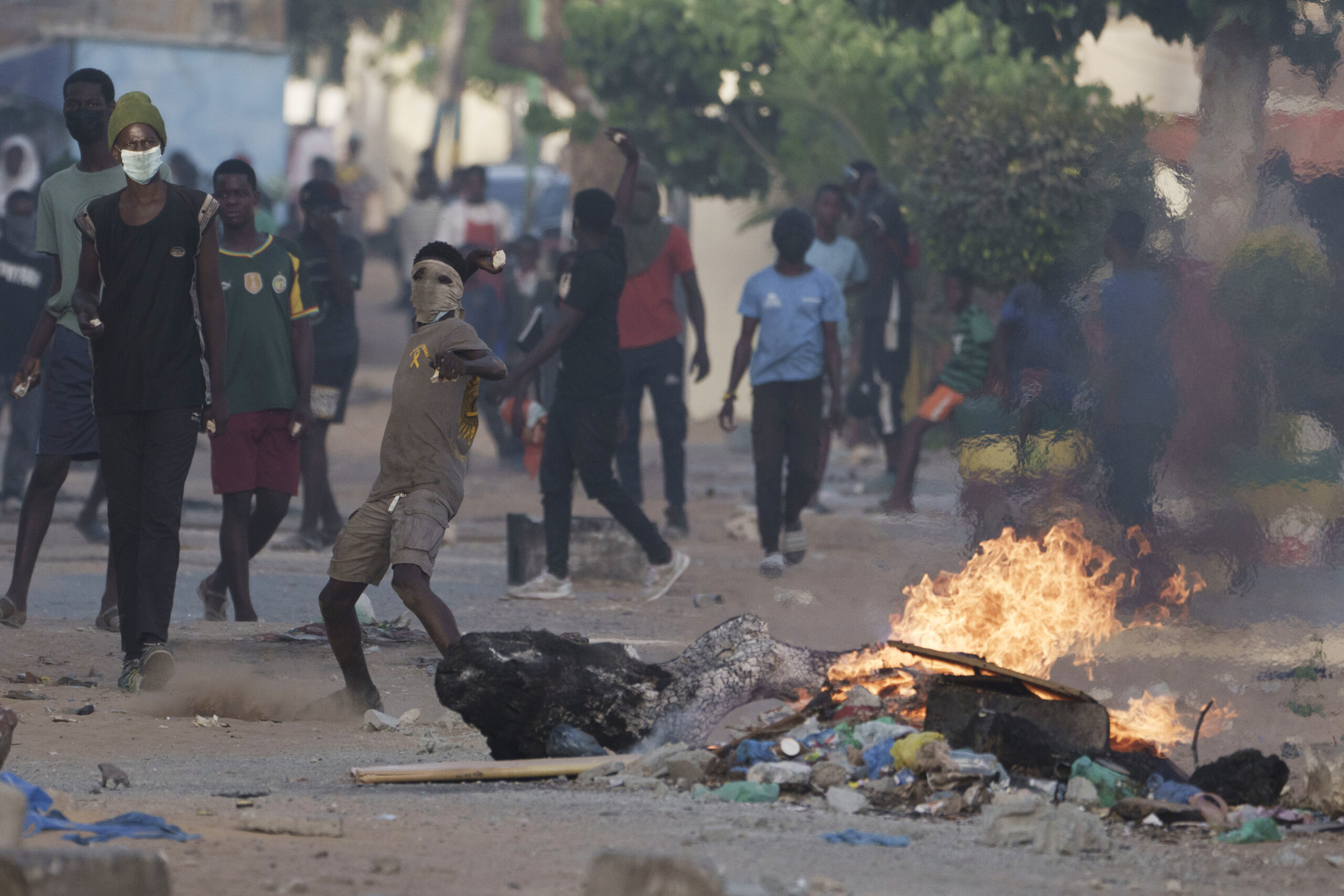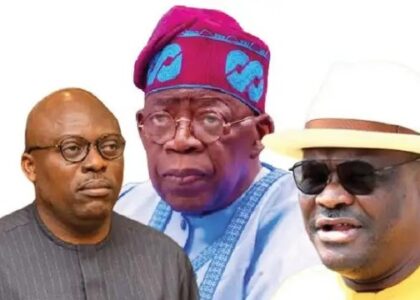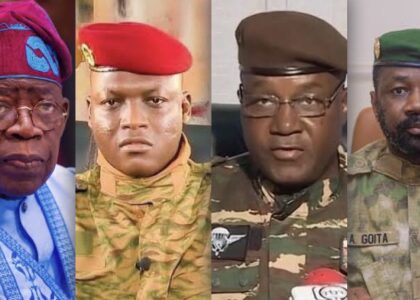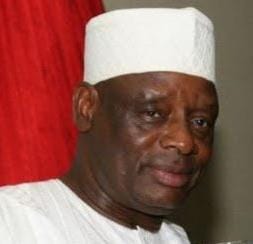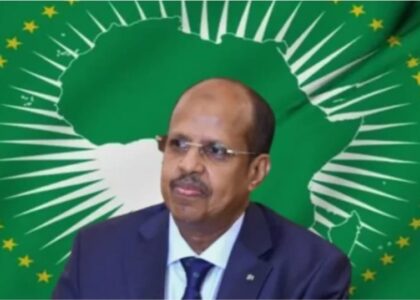Economic Community of West African States (ECOWAS), is at the brink of another political instability in one of the hitherto most stable States of the Community. It is however not surprising that Senegal is experiencing this unrest; what is surprising is the refusal or seeming inability or unwillingness of the authority of heads of States and government of ECOWAS to take the needed steps to avert this situation, despite the ominous signs that have pervaded Senegal since the indication that President Macky Sall is staking a diabolic third term agenda and the consequential crackdown on opposition voices.
Senegal obtained independence from France on 20 June, 1960. Léopold Sédar Senghor, the first president of Senegal, came into office in August, 1960, and retained power until 1981 when he retired and handed over to his handpicked successor, Abdou Diouf. Abdou Diouf ruled the country until 2000, when he was defeated by Abdoulaye Wade in an election. Wade ruled until 2012 when he lost to the incumbent, President Macky Sall, who served his first term of seven years until 2019. In 2016, the constitution of the country was amended to reduce the President’s tenure from seven to five years, which meant that by the time Macky Sall was re-elected in 2019, he was expected to serve for five years in his second and final terms in office.
Speculations have however been rife that the President is scheming for a third term in office, a move many Senegalese, particularly opposition politicians considered to be unconstitutional, since the constitution bars a third term in office. On his part, however, though he has not openly declared for the election, the President has argued that his first term was outside the current constitutional regime and that he is therefore eligible to run in the February, 2024 election.
The fact that the President has been employing undemocratic tactics against opposition leaders has further exacerbated fears that he does want to run for a third term. Furthermore, there have been increased activities from his supporters and those projecting his third term in office. In the gathering political uncertainties, President Sall has not publicly stated that he will not seek a third term in office, despite having been called upon to do so by opposition politicians. In an increasingly tense political climate, the opposition has repeatedly alleged that Sall intends to override the constitution to run for a third term. In April, 2023, over a hundred political and civil society groups formed a coalition against the President’s anticipated third term bid. The strong likelihood that he would stand and his activities pointing in that direction (chief of which is rights suppression) have been a source of tension in Senegal.
There has been a reported government crackdown on protesters. There have been arbitrary arrests and suspension of some social media sites, among others. Given this situation, Amnesty International released on the 17th day of March, 2023, it was stated: “Instead of cracking down on liberties, the authorities should respect human rights, halt excessive use of force during protests, allow the media to cover the demonstrations, stop arbitrarily detaining journalists and members of the opposition, and respect the rights to freedom of expression and peaceful assembly. This trend of repression must end now to deescalate the tensions.” Apart from Amnesty International, the international community has called on Senegal’s government to resolve the tensions.
The current escalation is consequent upon the conviction of Ousmane Sonko, who is considered President Macky Sall’s main competition. He was convicted of corrupting youth and sentenced to two years in prison. If this conviction stands, he would be automatically barred from standing for next year’s election. Sonko came third in the 2019 election, but his popularity, especially among the youths, is a major threat to Sall’s third term bid should he run.
Reminiscence of the 2021 protest when Sonko was arrested and charged for a different offence, huge protest broke upon his conviction on Thursday, the 1st day of May, 2023. His supporters have had clashes with the police, with fatalities recorded. Sonko supporters believe his criminal trial is part of the government’s efforts to disqualify him from the 2024 presidential election.
Obviously, the happenings in Senegal today are pointing towards another politically unstable State in the midst of such neighbouring States as Mali, Guinea and Guinea-Bissau, which have had political upheavals with the recent military coups in Mali and Guinea. Given the stabilising role Senegal has plays in that axis, there is no gainsaying the fact that neither Economic Community of West Africa States (ECOWAS) nor the Africa Union can afford a politically unstable or crisis ridden Senegal.
One would have expected the ECOWAS and the African Union to have waded into this matter in a clear and decisive manner since 2021, when protests and suppression of dissents by the Senegalese Government began to make headline news.
In fact both the ECOWAS and the AU ought to have invoked their respective instrument on the point: Protocol A/SP1/12/01 on Democracy and Good Governance, and the African Charter on Democracy, Elections and Governance (ACDEG), 2013, respectively.
In particular, it behoves ECOWAS to interrogate the situation in Senegal through the prism of the “constitutional convergence principles” in article 1 of the ECOWAS Protocol, which include: (a) separation of powers; (b) accession to power by free, fair and credible elections; (c) zero tolerance for powers obtained by unconstitutional means; (d) secularism and non-discrimination; (e) apolitical armed forces; (f) rights of political parties and the need for them to be nationalistic in nature; (g) freedom of association and press.
The Authority of Heads of State and Government of ECOWAS should deal with this situation now before it gets out of hand. Democracy must be grounded in free and fair elections in that power obtained by elections that are not free, fair and credible – the such are invariably characterised by suppression of human rights – are really not different from coup d’etat. ECOWAS must strengthen its processes and actions against democratic coup by proactive responses when it becomes obvious that an incumbent is employing undemocratic means towards retaining or sustaining power. Both the ECOWAS and the AU must show solidarity with the Senegalese people as well as send a strong message to undemocratic forces within the Community.
©June, 2023

